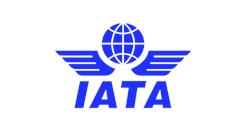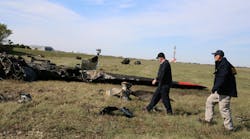WASHINGTON – Aeronautical Repair Station Association (ARSA) members could miss out on close to $200 million in foregone revenues this year as a result of unfilled technical jobs at their companies, the association announced today.
Fifty-five percent of respondents to ARSA’s recent member survey reported having unfilled positions. Based on the average number of vacancies at the responding organizations, the association estimates its members have 1,045 open technical jobs. The total economic loss figure – $185 million – was derived by multiplying the number of open positions by the $177,000 in average annual revenue per employee reported by respondents.
Projected across the entire population of Federal Aviation Administration (FAA)-certificated repair stations in the United States, the number of open positions may be close to 11,000. If those positions go unfilled, the industry could stand to miss out on as much as $1.95 billion in economic activity in 2017.
“These numbers are a snapshot of how just one industry is being affected by the technical worker shortage plaguing the U.S. economy,” ARSA Executive Vice President Christian Klein said. “Well-paying jobs in the high-tech aviation maintenance sector are going unfilled because workers aren’t available or candidates lack basics skills.
“We hope lawmakers working career technical education policy on Capitol Hill – including the recently-introduced Perkins reauthorization bill – will keep the aviation industry in mind when crafting solutions,” Klein said. “But Washington can’t solve this problem alone. Expanding the base of eligible job candidates and better aligning school curricula with repair station needs will require greater industry engagement at the local, state, and federal levels,” Klein said.
The worker shortage has become a major concern for maintenance providers. When asked to indicate the most-pressing risks to company business outlook, “difficulty finding and retaining technical talent” tied with “regulatory costs/burdens” among survey respondents. Availability of maintenance information, international regulatory inconsistencies and restrictions on trade rounded out the top five respondent concerns.
Despite these challenges, the survey found ARSA’s membership generally optimistic about the future. More than 90 percent of member companies expect their markets to expand or remain stable this year and more than half plan to add positions. The survey also underscored the significant impact that international business has on repair stations: almost one-third (31 percent) of revenues for the average U.S.-headquartered respondent came from customers outside North America.
ARSA Member Survey Respondent Overview
- Eighty ARSA member companies from around the world provided input for the survey, which was conducted during the first quarter of the calendar year.
- Respondents reported total 2016 gross annual revenues of $1.791 billion.
- Eighty-eight percent of respondents were headquartered in the United States.
- Respondents reported operating facilities in 29 of the 50 U.S. states.
- The best represented U.S. states were Florida (17 percent of respondents reported having facilities), California (17 percent), Texas (16 percent), Georgia (10 percent) and Ohio (10 percent).
If you have questions about the survey or the results, click here to contact ARSA.
ARSA is the only association devoted to the unique needs of the global civil aviation maintenance industry. It is dedicated to helping member companies operate more efficiently and effectively, while continuing to ensure the safety of aircraft worldwide. To learn more about the association’s work on behalf of both industry stakeholders and the flying public, please visit ARSA.org.




